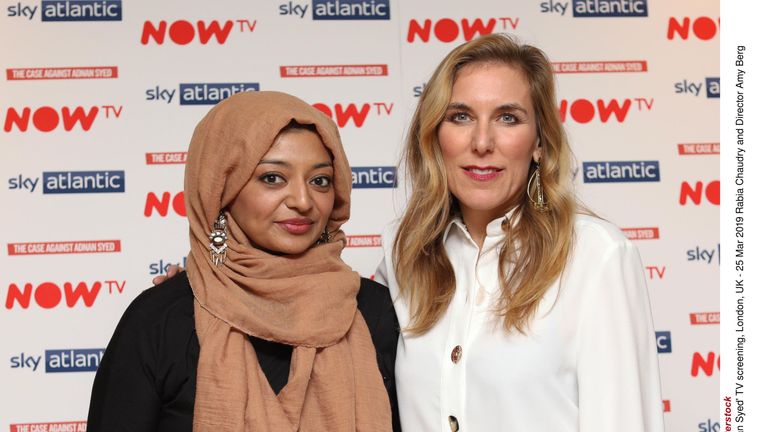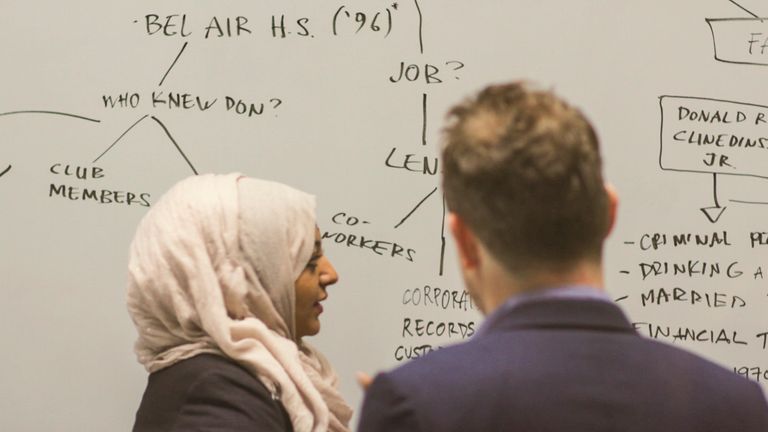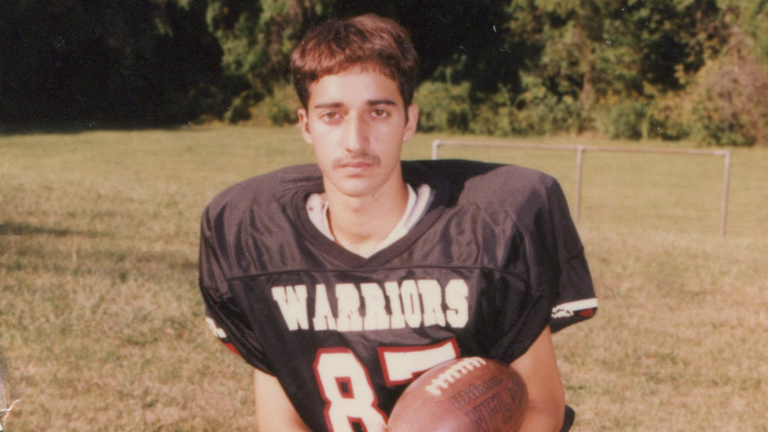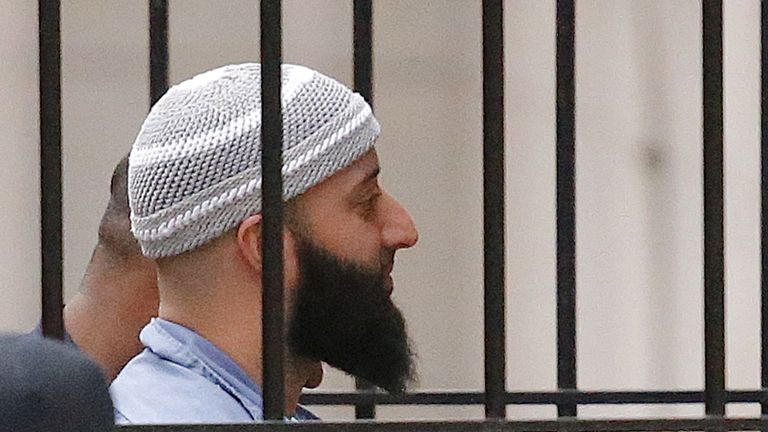For years, the murder of Baltimore high school student Hae Min Lee in 1999 was consigned to the headlines of the local press at the time, one of thousands of crimes seen through the US courts before it was on to the next.
Fifteen years later came the release of Serial, a podcast which carried out its own investigation into the conviction of the teenager's ex-boyfriend, Adnan Syed, highlighting the apparent flaws in his trial and the US justice system to what quickly became an audience of millions across the world.
The series lit the touch paper for the explosion of true crime which now fills our podcast libraries and TV planners, turning listeners and viewers into an army of armchair detectives.
Now comes The Case Against Adnan Syed, a new documentary written and directed by the Oscar-nominated Amy Berg, which picks up the story since Serial, raising even more questions over the conviction.
It also paints a visual picture that the podcast could not. The first episode of the series is all about Hae. Through the looped handwriting and biroed love hearts of a teenage girl's journal, as well as prom photos and video footage, we see part of the story at least through the victim's eyes.
"That was very important to me," Berg tells Sky News. "The teenage aspect was crucial I think. Her journals started right before she went to the prom with Adnan and her last entry was the night before she disappeared.
"I mean, it was really telling. It was really an important time in her life and we had great insights through her journal."
More from Ents & Arts
Berg is in the UK with Rabia Chaudry, an attorney and lifelong friend of Syed's. She was the one who first took the story to Sarah Koenig, the journalist whose careful and considered unpicking of the case turned into Serial.
Chaudry features in the new series. She has previously written a book, Adnan's Story: The Search For Truth And Justice After Serial, and hosted her own podcast, Undisclosed, about Syed's case and others.
It would be reasonable to wonder if there is anything new to say about the story, but the documentary isn't just going over old ground. And as Chaudry herself says, the show "visualises it like in no way I've seen it before".
"I've read Hae's diary many, many times, I've read witness testimony many, many times, but I have never seen these people come to life in this way so I'm in many ways learning the story in a different way altogether once again," she says. "The animation is beautiful and touching and it brought [Hae] to life in a way really in the only way that's possible at this point.
"It was also really moving to me to see Adnan animated as a 17-year-old because he's also lost in a lot of this."

It comes at a crucial time for Syed, who has now been in prison for 19 years. Earlier this month, a decision to allow a retrial was overruled by Maryland's highest court. What friends and family had thought would be a formality now looks like years more work.
"You know, since I started working on this film three-and-a-half years ago there has been nothing but forward progress and there have been six different judges who granted him a new trial," says Berg. "I kind of thought this was just the last step… so I was really surprised because all that anyone really wants, especially with all the questions surrounding this case, is to see a new trial, to see an actual trial play out with the benefit of new evidence and hindsight and all of that."
Chaudry says the latest decision came as "an utter shock".
"The issues were so strong… we just thought it was an impossibility. So it was completely shocking, it was devastating. I had had a few very, very bad hours and then we kind of regrouped and said, okay what's next?"

In terms of the appeals process, Chaudry says they continue, but they are all very much resigned to the fact a conclusion could be years again down the line.
"His lawyer is preparing to file a motion to reconsider with the same court," she says. "So we're asking the same panel of judges to reconsider their decision.
"At the same time we are preparing a writ to the Supreme Court of the United States. So we're going beyond the state level. That's the first two steps. But there are other steps. There are at least five or six options but we're just going to do them one at a time because this will take years again."
Hae Min Lee's strangled, partially buried body was found four weeks after she went missing on 13 January 1999, in a shallow grave in a park in Baltimore. Syed, who she had dated for several months in the year before her death, was convicted of first-degree murder in February 2000.
There was no physical evidence connecting Syed to the murder. His conviction came down to the testimony of friend Jay Wilds, who alleged that he helped bury Hae's body, as well as phone records – which are discredited in the new series.
Syed has always maintained his innocence.
Berg says that putting aside what she had already learned from Serial, she found many of her own issues with the case.

"There was a lack of corroboration for one and there is no actual physical evidence that connects Adnan to the crime. So those are big kind of warning signs in the wrongful conviction world.
"In terms of balance I wanted to get to the truth. If I found something out about Adnan that is beyond what was presented in the trial it was going to go into the film, but unfortunately – or fortunately, depending on what side of the issue you are – there just wasn't anything there.
"For me the biggest surprise was that Hae communicated with all of her friends on her pager and there was no record of her pagers in the original case file.
"Rabia thinks they requested it but it never showed up, her emails weren't there. There was no kind of investigation into what might have happened. And this is a woman who was missing for three and a half weeks before they found her body. So in that three and a half weeks there was no kind of deep dive into where she might be …
"Or at least there's no record of it," says Chaudry.
The documentary also looks into Hae's boyfriend at the time of her murder, Don, who she started dating after Adnan.
"Her boyfriend, who was kind of an anomaly to everyone in her life – he was three years older than her and had a different history – and he wasn't interviewed at all until three weeks after she was missing," says Berg.

Chaudry says a rape test was put on hold. She believes that having arrested Syed, police were determined to make sure the evidence didn't go against their work.
"I mean what I assume is they had already arrested Adnan; they knew who they wanted and what I have been told by former law enforcement officers is that this kind of thing happens when they want to prevent collection of bad evidence, meaning evidence that will not support their case. So they did a lot of thiRead More – Source
[contf] [contfnew] 
Sky News
[contfnewc] [contfnewc]







